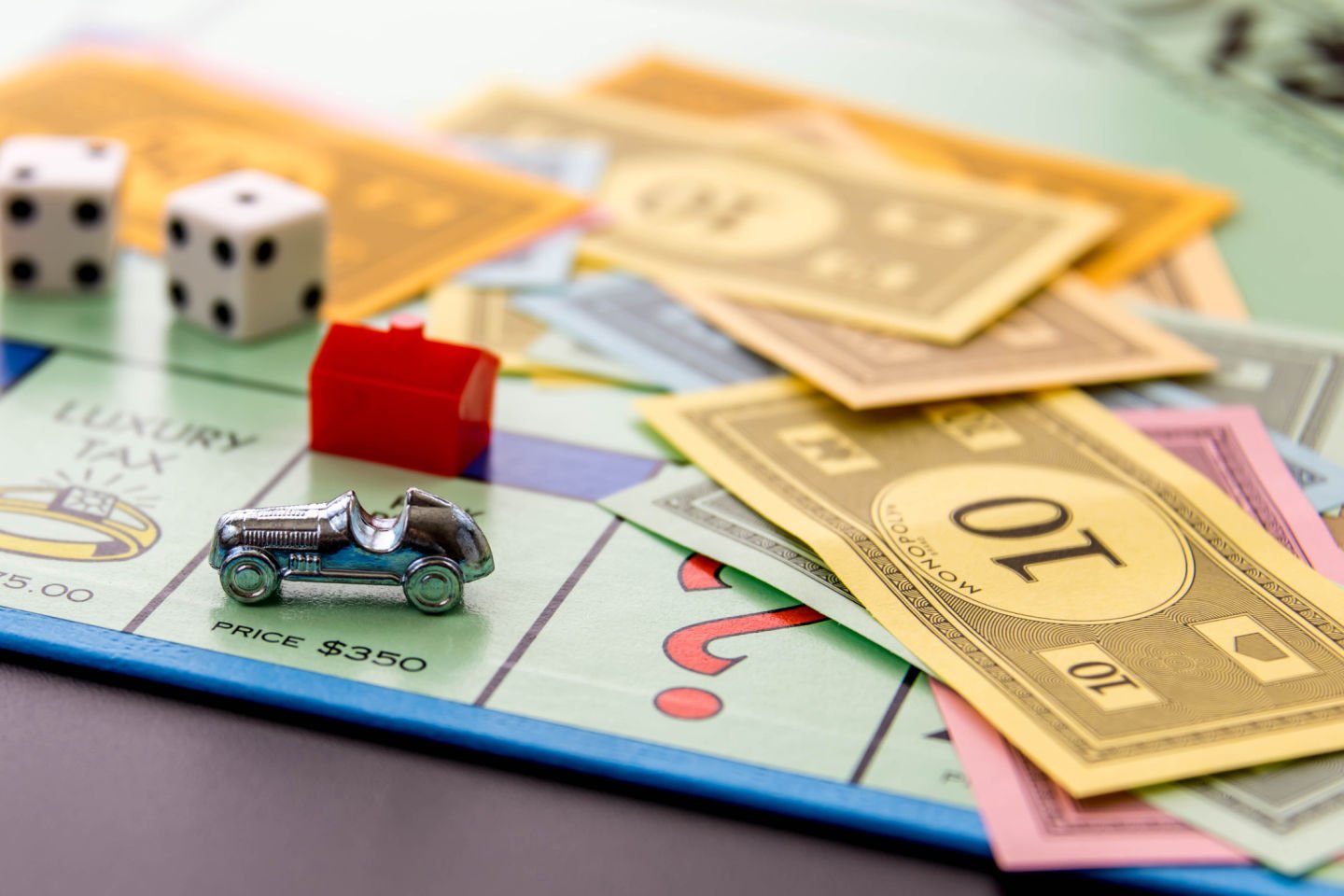How Monopoly teaches us to handle money
The popular board game doesn’t exactly reflect financial management in real life, but it’s a good starting point.

Monopoly has been around for 90 years, and it remains a popular pastime among families seeking intergenerational entertainment.
For some people who grew up playing it, Monopoly was not just good fun but a crash course in managing finances.
If that colourful board, tiny plastic houses and hotels, quirky tokens, and stacks of pretend money taught us anything back in the day, it was that acquiring real estate could be the key to a secure future.
Perhaps you didn’t get that memo, or you were shocked to discover that real-life properties cost more than a few hundred dollars (and that railway stations are not even up for sale).
But the next time you play, perhaps you’ll see the game in an entirely new light.
First up, Monopoly illustrates the importance of budgeting and keeping an eye on cash flow.
Every roll of the dice could bring a potential expense, from having to pay rent for landing on someone else’s property to the dreaded luxury tax – not to mention an instruction to go directly to jail – or an unexpected stroke of good luck.
Players quickly learn that keeping a cash reserve is essential to survive unexpected costs and avoid going bankrupt.
The game also highlights the value of investing wisely. Buying properties and upgrading them with houses and hotels requires a strategic balance. Spending too much too quickly can leave you cash-poor but failing to invest means missing out on the opportunity to generate a steady, passive income.
This principle translates directly to real-life investing, where a mix of calculated risk and patience is key.
One of the most exciting parts of Monopoly is trading properties with other players. Whether you’re trying to complete a set of properties or avoid landing on another’s high-rent spaces, you can learn how to negotiate deals that benefit both parties.
This can teach the value of clear communication and finding a win-win solution – a skill that’s invaluable in financial and professional contexts.
Monopoly’s Chance and Community Chest cards serve as a constant reminder that the future can bring unexpected challenges, and that financial risk is inevitable.
Sometimes the cards bring valuable rewards, and other times they come with penalties. The game teaches players to prepare for uncertainty and to take calculated risks when the potential rewards justify them.
Finally, Monopoly instills the importance of seeing the bigger financial picture. Winning isn’t just about accumulating the most money; it’s about managing assets and staying solvent.
This lesson encourages long-term financial planning rather than focusing solely on short-term gains.
Monopoly may be a game, but its lessons are real as you navigate the complexities of personal finance with increased confidence and strategy.
So, the next time the Monopoly board is dusted off, perhaps you can use the game to help you focus on your own financial situation – or to illustrate some valuable advice you may have for younger players.
A word of caution, though: financial losses in real life can hurt a lot more and take a much longer recovery time. It’s not as easy as upending the board and starting from scratch again another day.
Disclaimer: National Seniors is not a financial advisor. You should consider seeking independent legal, financial, taxation or other advice to check how any information provided relates to your unique circumstances.








